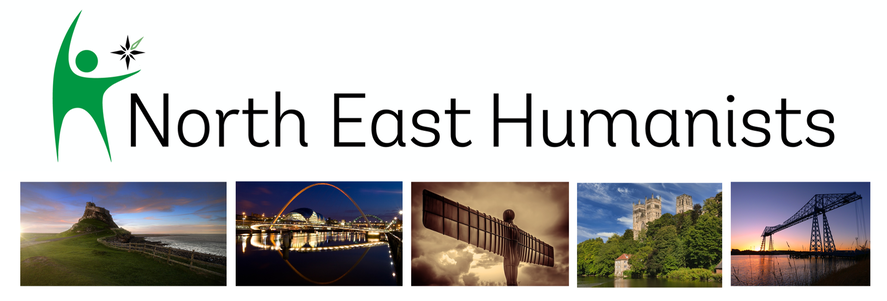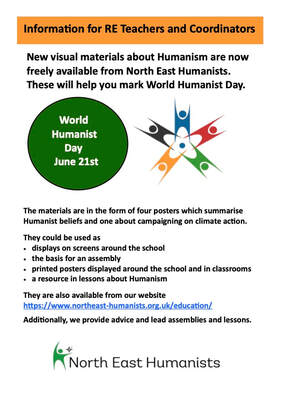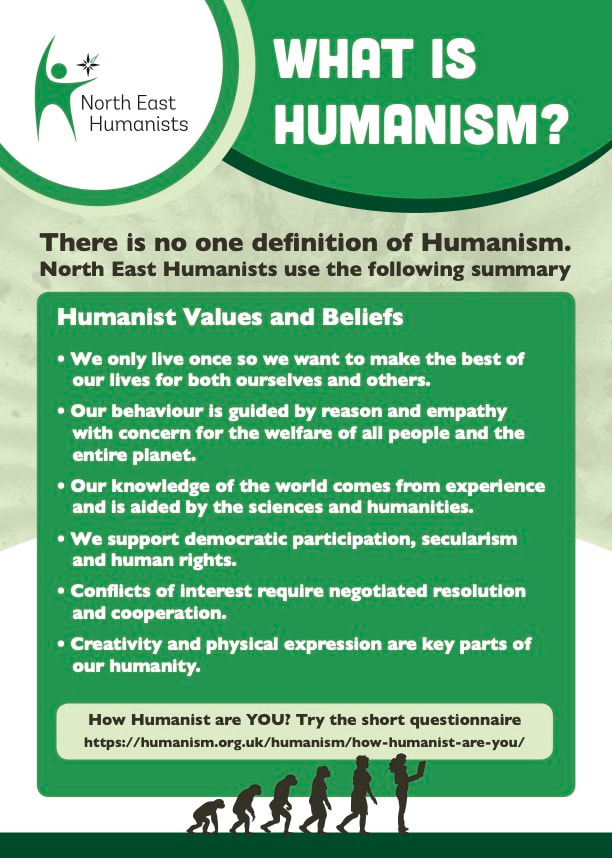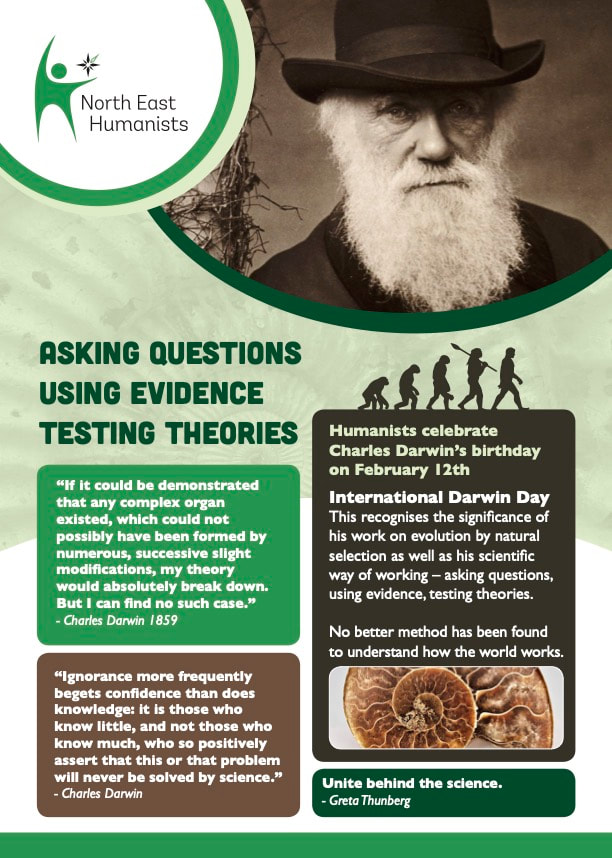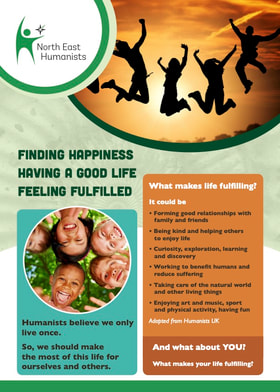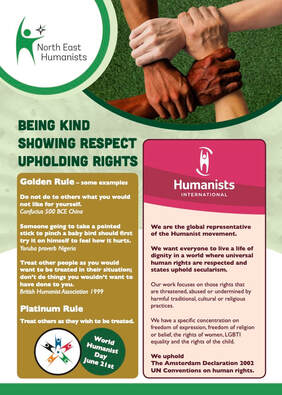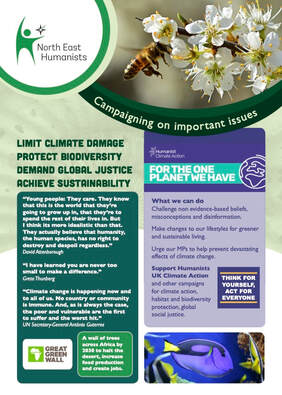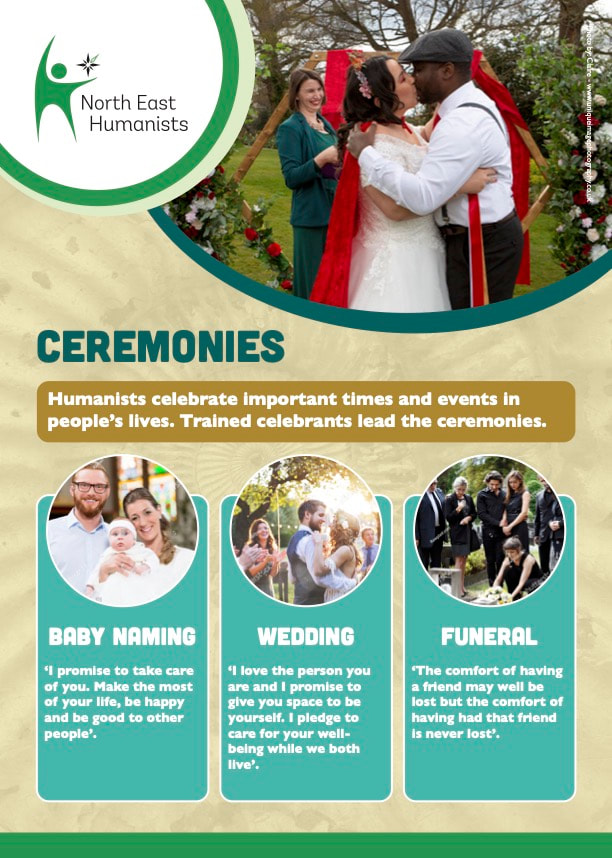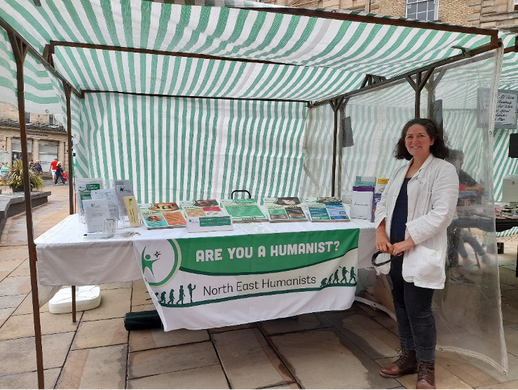Education

Darwin Day
Darwin Day is an annual celebration of Darwin’s date of birth on 12th February 1809. To support teachers in delivering this topic North East Humanists have produced a support pack which can be downloaded here.
BBC Radio Newcastle Broadcast: Humanism and Darwin Day
Listen here to an interview with North East Humanists broadcast in February 2024
https://www.bbc.co.uk/sounds/play/p0h8xz5x
Darwin Day is an annual celebration of Darwin’s date of birth on 12th February 1809. To support teachers in delivering this topic North East Humanists have produced a support pack which can be downloaded here.
BBC Radio Newcastle Broadcast: Humanism and Darwin Day
Listen here to an interview with North East Humanists broadcast in February 2024
https://www.bbc.co.uk/sounds/play/p0h8xz5x

School Support
North East Humanists have a team of experienced school speakers who have all been trained by Humanists UK. We are available to come into schools to lead assemblies, teach lessons, or contribute to interfaith events. Online sessions are possible now too. We can offer general introductions to Humanism or focus on particular issues. To do this, our speakers draw on a rich range of materials provided by Humanists UK, as well as other sources and our own experiences. Rest assured that we are not anti-religious. We happily work with people of various faiths and we are sensitive to the values and beliefs of pupils, teachers, and other adults. We concentrate on our own beliefs without denigrating those held by others, although we are critical of practices which infringe human rights.
If you want to arrange a speaker, please email us at [email protected].
Teaching children and young people about Humanism is usually planned as part of the religious education (RE) programme in schools. Humanism has been an optional part of RE for over a decade, during which time guidance and support for teaching about it has increased significantly.
The Commission on Religious Education (2018) made clear that the curriculum should include non-religious worldviews, with Humanism given as a major example. So, Humanism is increasingly built into the requirements of Agreed Syllabuses. For more on this development, see our paper on Worldviews. And also see our advice for discussions of "places to visit" rather than "places of worship".
North East Humanists have a team of experienced school speakers who have all been trained by Humanists UK. We are available to come into schools to lead assemblies, teach lessons, or contribute to interfaith events. Online sessions are possible now too. We can offer general introductions to Humanism or focus on particular issues. To do this, our speakers draw on a rich range of materials provided by Humanists UK, as well as other sources and our own experiences. Rest assured that we are not anti-religious. We happily work with people of various faiths and we are sensitive to the values and beliefs of pupils, teachers, and other adults. We concentrate on our own beliefs without denigrating those held by others, although we are critical of practices which infringe human rights.
If you want to arrange a speaker, please email us at [email protected].
Teaching children and young people about Humanism is usually planned as part of the religious education (RE) programme in schools. Humanism has been an optional part of RE for over a decade, during which time guidance and support for teaching about it has increased significantly.
The Commission on Religious Education (2018) made clear that the curriculum should include non-religious worldviews, with Humanism given as a major example. So, Humanism is increasingly built into the requirements of Agreed Syllabuses. For more on this development, see our paper on Worldviews. And also see our advice for discussions of "places to visit" rather than "places of worship".
| ||||||
In conjunction with this, our education team works with teachers, offering professional development and guidance.
We have prepared a document called "Additional Guidance for Humanism" for teachers of RE, in support of the Agreed RE Syllabus in Durham 2020. This additional guidance has also been adapted for North Tyneside and could be useful for teachers following other syllabuses. The guidance covers KS1 to KS4 and is designed to be readily usable by teachers. Most of the resources referred to in the documents are from the Understanding Humanism website. Direct links are provided in the texts.
| Additional Guidance for Humanism in support of the Agreed Syllabus for Religious Education in Durham (2022).docx |
| Additional Guidance for Humanism in support of the Agreed Syllabus for Religious Education in North Tyneside (2022).docx |
We have some additional freestanding documents that you may find useful:
We have some additional freestanding documents that you may find useful:
| discover and explore humanism at KS1/2 |
| places to visit in re syllabuses |
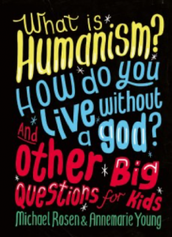
We also recommend this book as a fantastic resource for young people to learn about Humanism. It is called What is Humanism? How do you live a good life without god? And other Big Questions for Kids, and it was written by Michael Rosen and Annemarie Young. This book explores questions of life, death, science, nature, morality, meaning, and purpose from a Humanist perspective. It features interviews with Humanists including Philip Pullman, Shappi Khorsandi, Natalie Haynes, and Jim Al-Khalili, and asks them how they approach life’s biggest questions. The book is published by Wayland and is available at online retailers like Blackwell’s.
Adult Education
We have several presenters who have experience talking about Humanism to groups such as WIs, men’s clubs, and Probus clubs. Each talk can be tailored to your requirements, but most groups normally want something on our history, beliefs, campaigns, and involvement with the local community. The sessions normally end with a Q&A session interacting with the audience.
Humanists are not anti-religious and our speakers are sensitive to the varied beliefs of our audience.
If you want to arrange a speaker, please email us at [email protected].
We have several presenters who have experience talking about Humanism to groups such as WIs, men’s clubs, and Probus clubs. Each talk can be tailored to your requirements, but most groups normally want something on our history, beliefs, campaigns, and involvement with the local community. The sessions normally end with a Q&A session interacting with the audience.
Humanists are not anti-religious and our speakers are sensitive to the varied beliefs of our audience.
If you want to arrange a speaker, please email us at [email protected].
Poster Resources
We have produced several posters to explain different aspects of Humanism. You may click on the pictures below to see a larger image, or you can download print-ready PDF files by clicking the text below the pictures.
We have produced several posters to explain different aspects of Humanism. You may click on the pictures below to see a larger image, or you can download print-ready PDF files by clicking the text below the pictures.
North East Humanists Stall
We can also provide a stall with information about Humanism, using our series of posters, plus a range of handouts from North East Humanists and Humanists UK. We have taken this to outdoor places in town and city centres across the region, such as shown in the photograph below in Durham Market Place. We have also provided this stall for an event at Teesside University.
Our stall is suitable for community events, markets, school/college/university events, and interfaith/diversity events. It is always staffed by at least one member of North East Humanists who is happy to talk to members of the public of any faith or none. Please contact us if you would like us to come to a venue near you.
